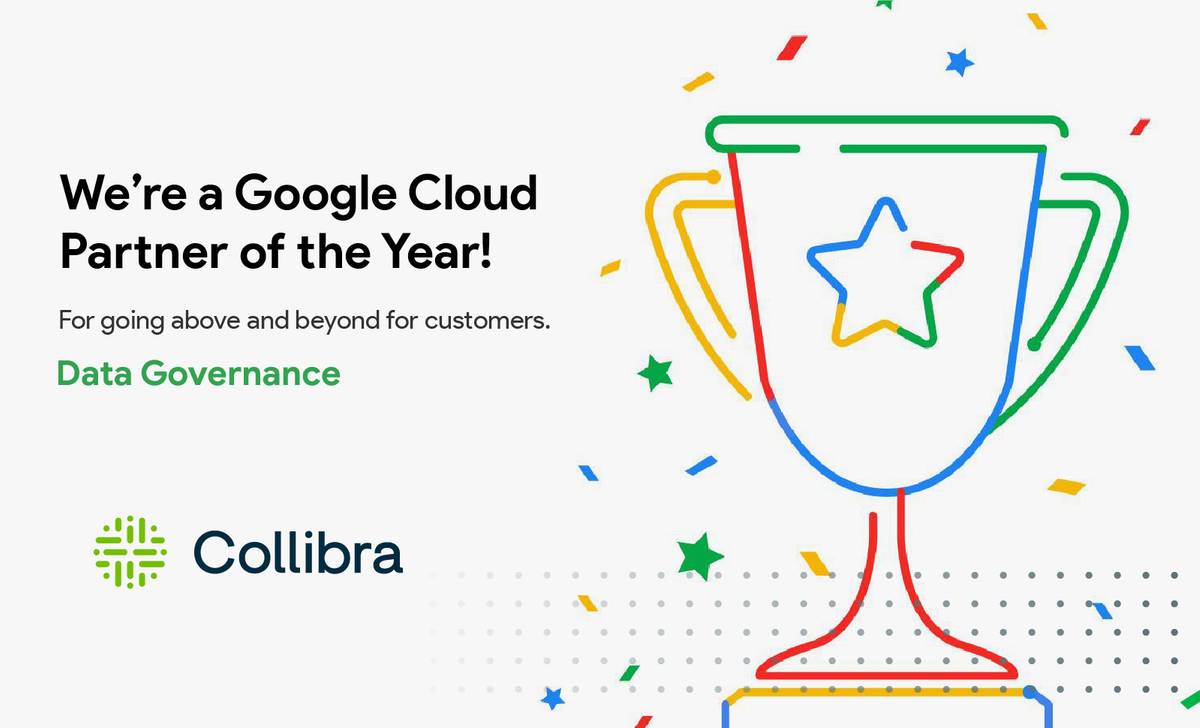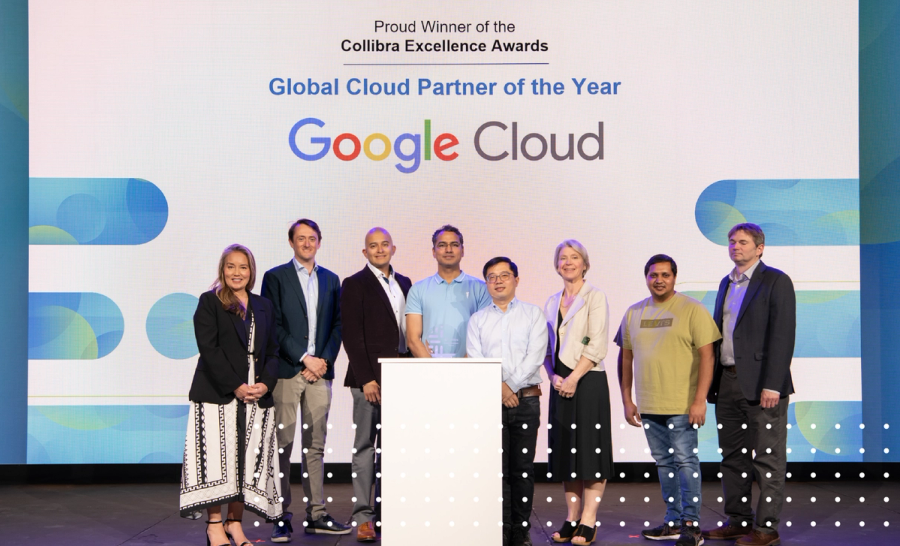Collibra is proud to be part of the Snowflake Horizon Partner Ecosystem

Snowflake recently announced the launch of Snowflake Horizon, their built-in governance solution that unifies compliance, security, privacy, interoperability and access capabilities in the Snowflake Data Cloud. Collibra is proud to be included in the Snowflake Horizon Partner Ecosystem to help organizations with hybrid and multi-cloud environments simplify and scale their data governance strategy across their disparate data sources.
Why Snowflake and Collibra
Think of the possibilities available to your organization if your subject matter experts could dedicate more energy to advancing strategic business goals, instead of handling labor-intensive tasks like cataloging and classifying data, lineage documentation, and the creation/deployment of access policies and data quality routines across multiple data sources.
Collibra and Snowflake can help you get there. Partnered since 2019, the joint value of Collibra and Snowflake lies in the combination of Collibra’s robust data governance capabilities with Snowflake’s cutting-edge data cloud platform. Customers benefit from Collibra’s unified platform for data intelligence by enabling them to create trust in their data, simplify data privacy and scale data quality inside and outside of Snowflake across their entire data ecosystem. Of course, we all know that Snowflake is known for their highly performant, flexible and scalable data cloud platform for a wide range of workloads, including data warehousing, data lakes and data-intensive applications. This powerhouse combination enables organizations to take down data silos and accelerate access to actionable insights that drive positive business outcomes.
Let’s dig into how native integrations between Collibra and Snowflake are making it easier for organizations to simplify and scale their enterprise data governance efforts while realizing the full value from their Snowflake investment.
Establishing an enterprise data catalog
For an effective data governance strategy, you first need to understand the data you have. This begins with cataloging your data so it is easy to find, understand and access for all data stakeholders—from business to technical users and executives to individual contributors. It starts with obtaining visibility into the technical metadata, but to have a full understanding of your data, you also need business, operational and privacy context.
Snowflake maintains a rich set of metadata about the data within the Snowflake Data Cloud, providing a strong foundation on which to build an enterprise data catalog and governance strategy with Collibra. Our joint customers can quickly and easily connect Collibra to their Snowflake environments to automatically ingest Snowflake metadata. Collibra Data Catalog uses this metadata to automatically inventory and classify the data with further context about its relevance to the business, the sensitivity of the data and other compliance concerns. Where this additional context is not readily available within Snowflake, Collibra’s user-friendly experience enables data stakeholders including business analysts, lawyers and privacy managers to further enrich the metadata with details about the value of the data, how it can be used and shared and any potential risks.
Adding further value, Collibra catalogs data from other source systems—including those that are on-premises—using similar capabilities. With a centralized view of their entire data estate, Snowflake customers can more easily prioritize and accelerate the migration of their most important data assets to the Snowflake Data Cloud. Once migrated, Collibra helps keep Snowflake data organized and reduce the time spent by data scientists and analysts accessing and consuming the right data, allowing them to spend more time deriving new insights and growth opportunities.
Safeguard sensitive data at scale
The mishandling of sensitive data can result in negative consequences—diminished customer trust, financial loss, legal action, operational downtime and more. When you have to do this across disparate systems, data protection can become very complex, very quickly.
With Collibra Protect’s no-code approach to data protection and access policy capabilities, data stewards can safeguard sensitive data in a central place across a multi-cloud environment— without relying on technical teams for coding. Collibra offers two types of policies—data protection standards and data access rules. Data protection standards create a primary layer of protection for similar types of data—regardless of the database, table, or schema where the data resides. Data access rules create an additional layer of protection by managing access and enhancing protection for specific usages. For instance, if credit card payment information (number, security code, expiration date, name, billing address) is stored in multiple data sources, you can create a single data protection standard that hides or “masks” this information across all instances. Then you can create a data access rule that grants access to a particular group for a specific dataset that contains credit card payment information, where appropriate. This approach enables data protection at scale by default while providing fine-grain access to those that need it as a critical part of their role within the organization.
Once the data protection standards and data access rules are created, they can be synchronized to the various data cloud platforms within your data estate in a format that meets their policy requirements. For example, policies defined within Collibra are enforced on Snowflake as follows:
- Data protection standards result in tag-based policies on Snowflake and are subsequently applied to the tags in Snowflake.
- Data access rules result in column-level masking policies on Snowflake that can be applied within a table or view.
- Row filters in Collibra’s data access rules result in row-level policies on Snowflake that determine which rows to return in a query.
Faster and more secure data quality processing with Data Quality Pushdown for Snowflake
If you can’t quickly find and fix data quality issues, you can’t trust the results derived from your data, which can hurt business growth.
Collibra Data Quality & Observability enables a consistent approach to monitoring the quality of your data across your Snowflake environments and other sources. It leverages machine learning (ML) to generate adaptive checks and rules that automate anomaly detection without the need for additional code. This reduces manual processes, enabling rule writers to focus on higher-impact tasks. Collibra makes it easy to manage and scale data quality across the enterprise, delivering high-quality data for operations, analytics, and AI.
With the addition of Pushdown for Snowflake, Collibra auto-generates the SQL queries to monitor data quality and pushes them to the Snowflake Data Cloud to perform the required processing, eliminating reliance on an intermediary compute plane. And because the data never leaves your Snowflake environment, processing is faster, more secure and saves you money by reducing the total cost of ownership.
Full traceability of your data from source to destination with end-to-end-lineage
In most organizations, data is being moved, transformed and used across multiple systems. The more complex your data estate is, the more challenging it can become to trace your data throughout its entire lifecycle. Without detailed end-to-end lineage, it can be difficult to predict when something might go wrong or perform root cause analysis when something does go wrong.
Snowflake’s access history helps customers know how their data flows within Snowflake and external sources queried by Snowflake. Collibra Data Lineage extends the view of lineage beyond Snowflake by harvesting Snowflake lineage through a native connection and automatically mapping the relationships between Snowflake Data Cloud and other systems, including on-premise sources, ETL/ELT tools, BI tools and more. Collibra visualizes the flow of data, transformations and usage through both a technical and business-friendly view, empowering users to advance their understanding of data through the context of their role, ultimately improving trust in data for all stakeholders.
This comprehensive end-to-end view of lineage brings several benefits to organizations by helping track cross-system data flow to support adherence to policies related to sensitive information such as PII, simplify traceability and auditing to address compliance concerns, perform impact analysis, and address issues with data quality and consistency.
Transform your data into a strategic asset with Snowflake and Collibra
The data management landscape is ever-evolving, and organizations looking to maintain their competitive edge need to evolve their data strategy at the same pace. It begins with making it easy to find, understand and access trusted data for all users across your organization. This is impossible without first knowing what data you have, who is accountable for it, and filling in the knowledge gaps about the data.
With the combined power of Snowflake and Collibra’s native integrations, flexibility, scalability and automation, you can accelerate this process, freeing your subject matter experts from the tedious and repetitive tasks related to data cataloging, governance, quality and lineage. This newfound freedom will enable them to spend more energy on optimizing data intelligence, accelerating business initiatives and opening up access to new insights and growth opportunities. This is when the real transformation of data into a strategic asset begins.
Learn more about the Collibra and Snowflake partnership on Collibra’s Snowflake Partner Page.
You can also visit us at Snowflake Data Cloud Summit at the Moscone Center in San Francisco June 3-6.
In this post:
- Why Snowflake and Collibra
- Establishing an enterprise data catalog
- Safeguard sensitive data at scale
- Faster and more secure data quality processing with Data Quality Pushdown for Snowflake
- Full traceability of your data from source to destination with end-to-end-lineage
- Transform your data into a strategic asset with Snowflake and Collibra
Related articles

PartnerAugust 29, 2023
Better together: Collibra wins Google Cloud 2023 Partner of the Year Award for Data Governance

PartnerMay 20, 2025
It’s time to turn the volume up on AI: Collibra Data Quality & Observability for SAP Business Data Cloud

Data MeshAugust 17, 2023
Accenture + Collibra: 2023 data mesh reading list

PartnerApril 22, 2024
The AI journey takes a giant leap: Data Citizens ‘24 and Google Cloud Next ‘24
Keep up with the latest from Collibra
I would like to get updates about the latest Collibra content, events and more.
Thanks for signing up
You'll begin receiving educational materials and invitations to network with our community soon.
